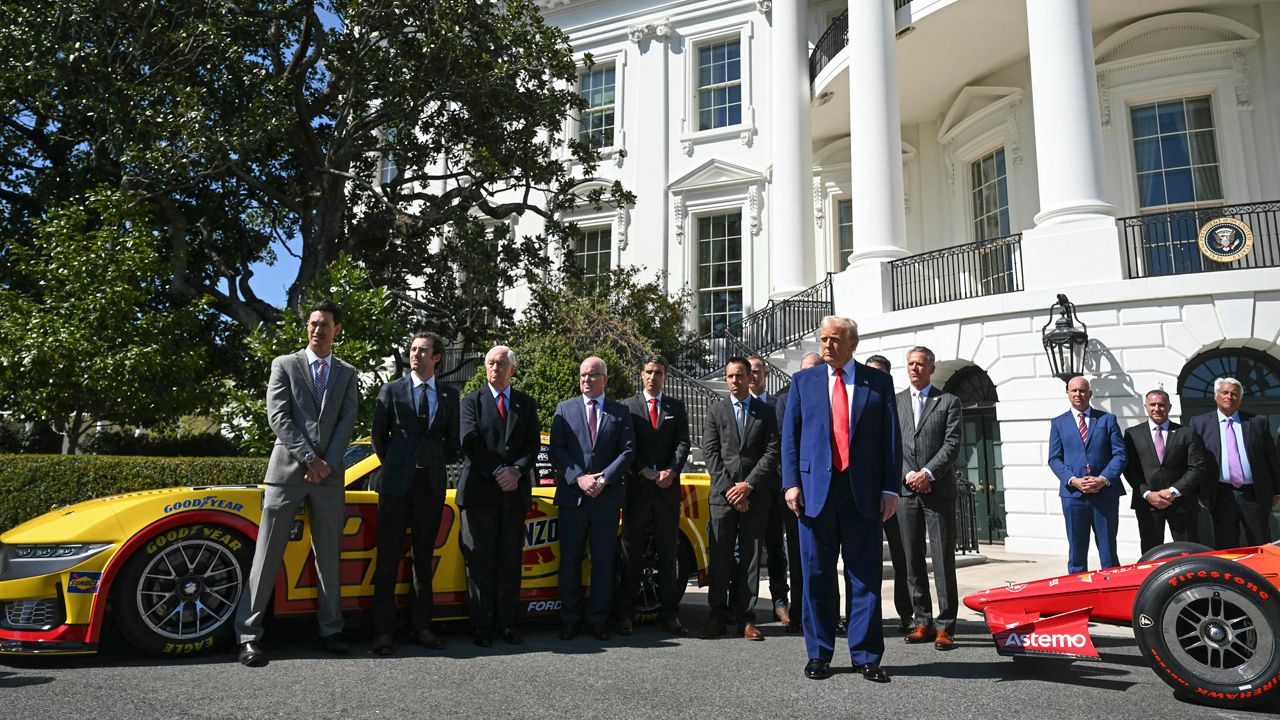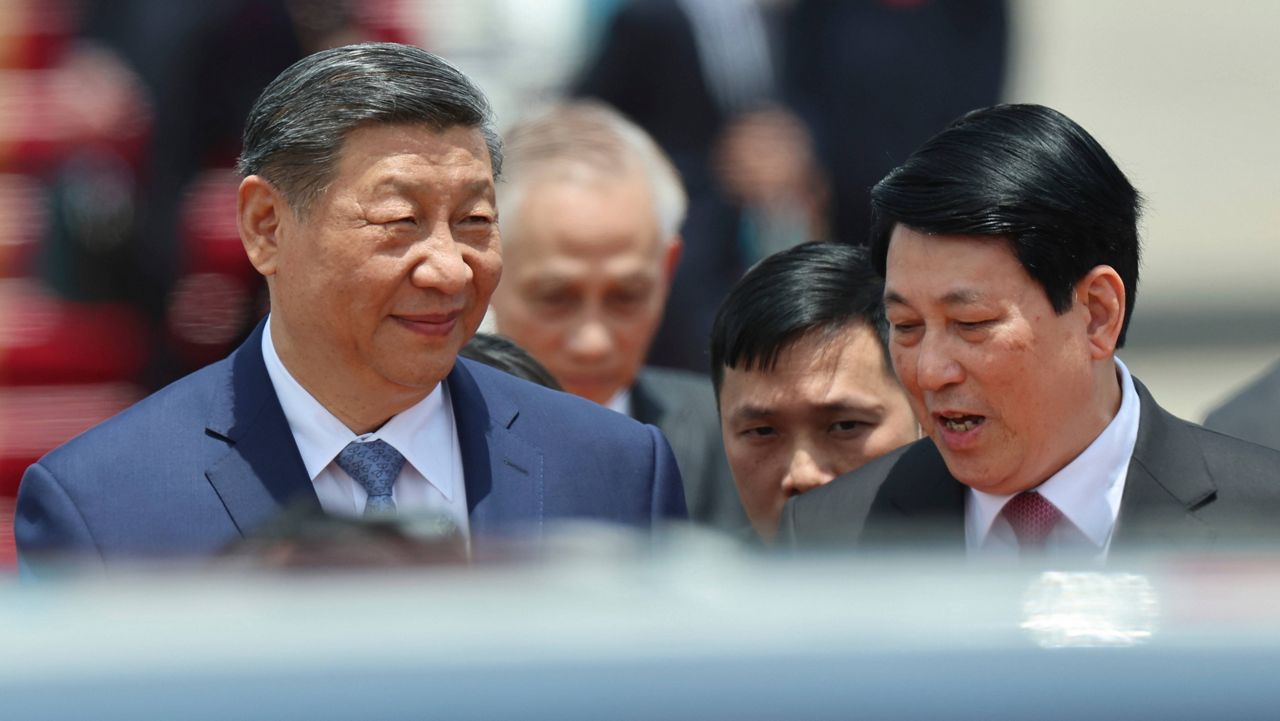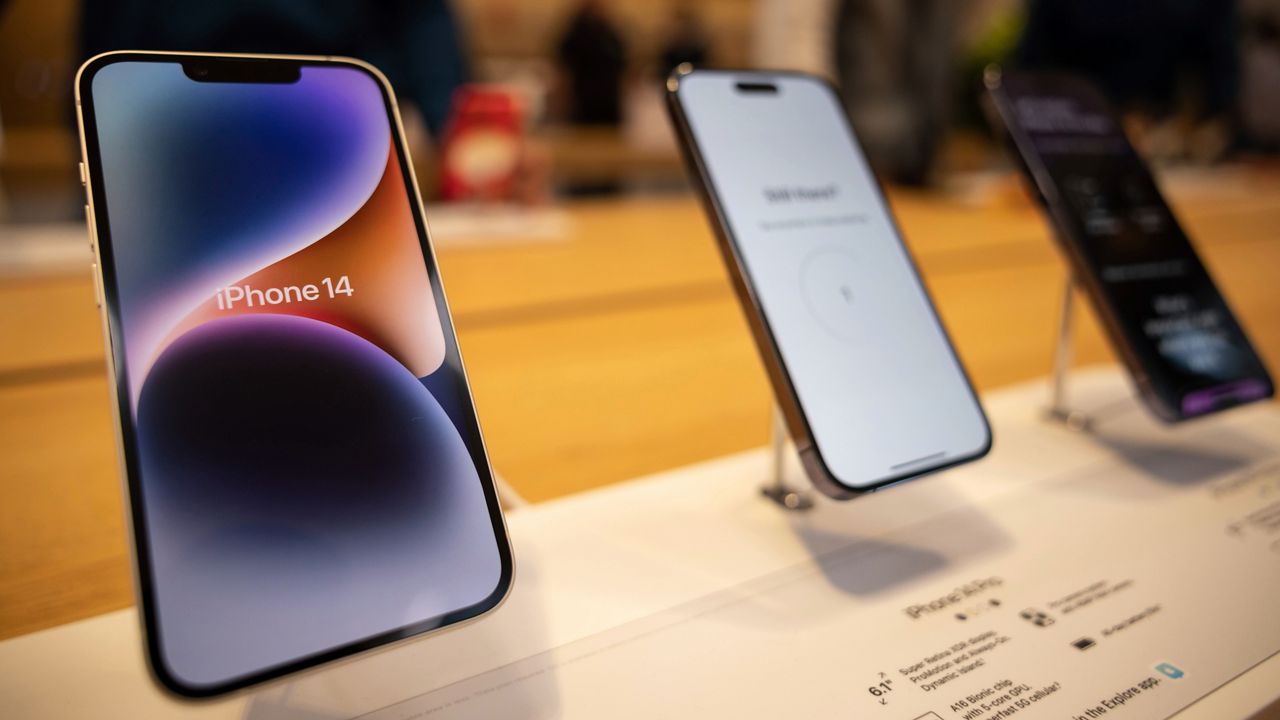In a highly anticipated address in Raleigh, North Carolina, on Friday to lay out her economic policy proposals if elected, Vice President Kamala Harris sought to present a choice in November between a candidate who will be "laser focused" on the middle class and one who will “devastate" the group.
“As President, I will be laser focused on creating opportunities for the middle class that advance their economic security, stability and dignity,” she said during remarks at a community college in Raleigh, N.C. “Together, we will build what I call an opportunity economy.”
“An opportunity economy,” she repeated. “An economy where everyone can compete and have a real chance to succeed.”
She later claimed her Republican opponent, former President Donald Trump, on the other hand, would “punish working people” and raise the cost of living for “millions of Americans.”
Among the new policy priorities the vice president rolled out on Friday is a pledge to ban corporate price gouging in the food and grocery industries, which would include giving the Federal Trade Commision and state attorneys general the power to investigate and impose penalties on corporations for violations.
“My plan will include new penalties for opportunistic companies that exploit crises and break the rules, and we will support smaller food businesses that are trying to play by the rules and get ahead,” she said on Friday, adding that while most businesses are “playing by the rules,” some are not.
“And that's just not right, and we need to take action when that is the case,” she declared.
Harris also addressed the need to lower housing costs for Americans, pledging that three million new houses and rental units would be built under her presidency and unveiling plans to crack down on price fixing and provide down payment assistance to first time home buyers.
To help facilitate the creation of new housing units, Harris will propose providing tax incentives for companies that build starter homes and sell them to first-time homeowners, as well as expanding incentives for those building affordable rental housing. She will also look to create a $40 billion “innovation fund” to support creative methods of construction financing and help local governments find housing solutions.
In a bid to lower rent, Harris will call on Congress to pass two pieces of legislation: one that cracks down on data firms used by landlords to fix prices and another that would remove tax benefits for major investors from buying and marking up homes in bulk.
The vice president will also pledge to provide up to $25,000 in down payment assistance to first-time home buyers, which her campaign says would lead to more than four million buyers receiving help.
“Some corporate landlords collude with each other to set artificially high rental prices, often using algorithms in price fixing software to do it,” she said. “It's anti-competitive, and it drives up costs – I will fight for a law that cracks down on these practices.”
Her proposal also calls for a $6,000 Child Tax Credit for families with newborn children for the first year of their life, an expansion on the Biden administration's $35 insulin cap for Medicare recipients to everyone and a $2,000 out-of-pocket cap for prescription drugs.
Trump's campaign hammered Harris' policy proposals, seeking to paint her plans as "socialist and authoritarian," particularly taking aim at her plan to combat price gouging.
Her economic speech in North Carolina — a Republican-leaning state her campaign is putting resources toward flipping in November — was her first event as the Democratic nominee for president focused specifically on rolling out a set of policy proposals.
Harris faced some questions over her decision to veer on the lighter side when it comes to laying out any concrete policy priorities during her first three weeks since President Joe Biden dropped out of the race and endorsed her.
She gave the public a taste of a new policy she would embrace at a rally in Las Vegas last weekend when she said she would end taxes on tips — an idea Trump proposed weeks ago on the campaign trail, prompting the Republican presidential nominee to accuse Harris of copying him.
Harris on Friday did not shy away from taking on her GOP rival, criticizing his speech in North Carolina just a few days earlier also billed as being about the economy.
“He said he was going to talk about the economy, I think you all watched, you know what I'm about to say,” Harris said. “But he offered no serious plans to reduce costs for middle class families, no plan to expand access to housing or health care. And that, actually, I think for most of us, was not surprising.”
The Harris campaign has sought to paint the vice president and her running mate, Minnesota Gov. Tim Walz, who grew up in rural Nebraska, served in the Army National Guard and coached a high school football team, as keenly in tune with America’s middle class.
Harris continued that on Friday when she recounted spending a summer while in college working at a McDonald’s to earn extra spending cash – a fact her team has already weaved into multiple campaign ads.
“Some of the people I worked with were raising families on that paycheck, they worked second or even third jobs to pay rent and buy food – that only gets harder when the cost of living goes up,” she said of her time spent at McDonald’s. “When I am elected president, I will make it a top priority to bring down costs and increase economic security for all Americans.”
There have been some question over whether and to what degree Harris would seek to distance herself from her current boss, President Joe Biden, on the economy as inflation — despite falling significantly since its peak in 2022 and the country receiving good news on the topic on Wednesday — has plagued voters’ views of his handling of the topic.
Biden on Thursday made clear his answer to the question: “She’s not going to,” he said when asked by a reporter about whether it would bother him if she did.
Harris on Friday touted a few shared accomplishments with the president while pledging to expand policies.
Her remarks on Friday came one day after she joined Biden on stage in Maryland to tout a major milestone in their quest to lower prescription drug prices for those on Medicare.









